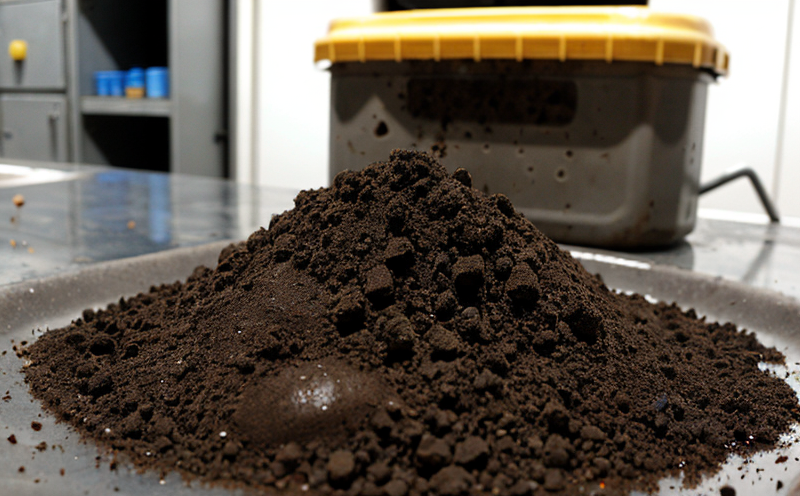Veterinary Medical Device Residue Testing
The veterinary medical device industry is critically important in ensuring that animals receive safe and effective treatments. One of the key challenges faced by this sector is the need to ensure that devices do not introduce harmful residues or contaminants into animal bodies during use. This service, Veterinary Medical Device Residue Testing, focuses on identifying and quantifying residues from these devices that may remain after their intended use.
Residues can include adhesives, lubricants, cleaning agents, or any other materials used in the manufacturing process of veterinary medical devices. Even trace amounts of such residues could potentially cause harm to animals if they enter the bloodstream or tissues during treatment. Therefore, thorough testing is essential for ensuring both product safety and regulatory compliance.
Our laboratory employs advanced analytical techniques including mass spectrometry (MS), liquid chromatography-mass spectrometry (LC-MS/MS), gas chromatography-mass spectrometry (GC-MS), Fourier transform infrared spectroscopy (FTIR), and nuclear magnetic resonance spectroscopy (NMR). These tools allow us to detect even minute levels of residues, providing you with precise results that can be used for quality control purposes.
The testing process typically involves several steps. First, we receive the device from our client, followed by careful cleaning and preparation of samples according to industry standards. Next comes extraction using appropriate solvents designed to target specific types of residues. Afterward, the extracts are analyzed using one or more of our state-of-the-art instruments mentioned above.
Our team then interprets these measurements against relevant international guidelines such as ISO 10993-26 for biocompatibility evaluation which includes assessment of leachable and extractable substances from medical devices. Based on this analysis, we issue detailed reports specifying all detected residues along with their concentrations or limits.
By offering reliable residue testing services, we help manufacturers maintain high standards throughout their product lifecycle – from development through commercialization to post-market surveillance. This ensures that only safe and effective veterinary medical devices reach the market, thereby protecting both animals' health and consumers' interests.
Industry Applications
The importance of residue testing extends beyond just ensuring animal safety; it also plays a crucial role in maintaining the integrity of the supply chain within the veterinary medical device industry. By detecting any potential contaminants early on, manufacturers can take corrective actions to prevent further contamination during production processes.
Furthermore, this service supports regulatory compliance which is essential for entering new markets or expanding existing ones. Regulatory bodies worldwide are increasingly stringent about ensuring that all products meet strict safety requirements before being allowed onto their respective markets. Having accurate residue test results helps companies navigate these regulations more effectively while reducing the risk of recalls due to non-compliance.
Residue testing also benefits R&D teams by providing valuable insights into how different components contribute to overall device performance and biocompatibility. This information can be used not only for improving current products but also for designing future generations with enhanced safety profiles.
Customer Impact and Satisfaction
Our customers benefit greatly from our veterinary medical device residue testing service through several key ways:
- Enhanced Product Safety: With accurate detection of all residues, manufacturers can ensure their products are safe for use on animals.
- Compliance with Regulations: By meeting stringent regulatory requirements, companies can avoid costly fines and delays associated with non-compliance.
- Better Understanding of Products: Insights gained from residue testing aid in optimizing product design and manufacturing processes.
- Informed Decision Making: Reliable data helps stakeholders make informed decisions regarding quality assurance strategies, supplier selection, and process improvements.
We pride ourselves on delivering exceptional service to our clients. Our team works closely with each customer throughout the testing process, ensuring that they receive clear communication about every aspect of their project. From initial consultation through final report delivery, we strive to exceed expectations by providing prompt responses, transparent processes, and high-quality results.
Environmental and Sustainability Contributions
In addition to its direct benefits for the veterinary medical device industry, residue testing contributes positively towards environmental sustainability. By identifying harmful residues early in the product lifecycle, manufacturers can implement changes that reduce waste generation during production processes. This leads to more efficient use of resources and lower emissions associated with manufacturing activities.
Moreover, by ensuring that only safe products enter the market, this service helps prevent harm to wildlife through improper disposal methods. Proper handling and management of veterinary medical devices post-use is critical for minimizing environmental impact.
We recognize our responsibility towards sustainability and continuously strive to incorporate eco-friendly practices into our operations. This includes using sustainable laboratory materials where possible and implementing energy-efficient procedures whenever feasible.





